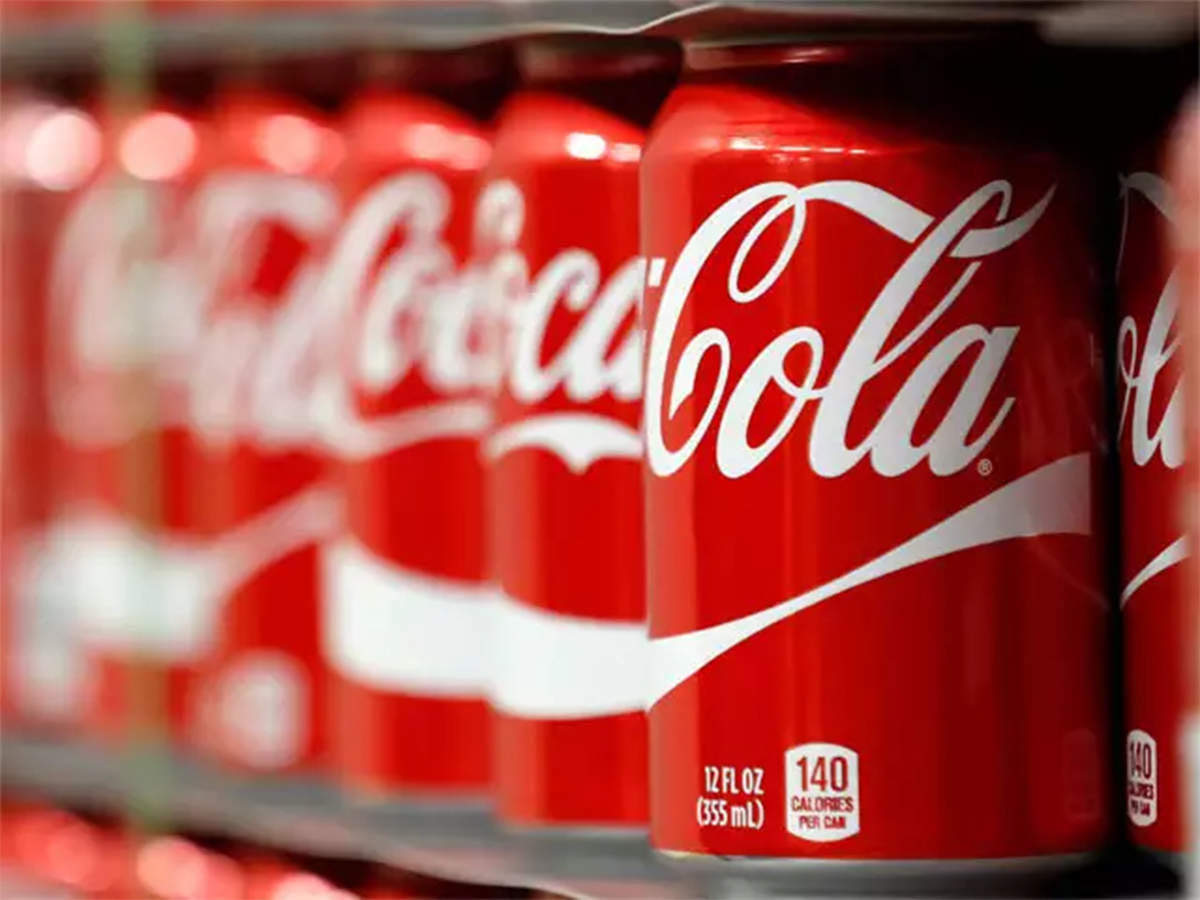
The consumer non-durables industry, often overlooked in favor of more glamorous sectors, silently fuels our daily lives with the essential products we use and consume regularly. From toothpaste to breakfast cereal, and household cleaning supplies to personal care items, the world of consumer non-durables is integral to our existence. In this article, we embark on a journey whether is consumer non-durables a good careerpathfor individuals looking to make their mark in the professional world.
What Are Consumer Non-Durables?
Consumer non-durables, often referred to as fast-moving consumer goods (FMCG), are products that are intended for regular or daily use and have a relatively short lifespan. These goods are typically consumed or exhausted quickly, as opposed to durable goods, which have a longer life cycle.
To put it simply, non-durable things are those that are used only a few times or for a short amount of time, usually less than three years. Long-term, things that don't last have to be bought over and over again.
A good that doesn't last long is something like food. People buy food, even if it comes in a can, and then eat it. Then the customers have to buy a new one. Non-durable things are important to the economy because they need new moneyall the time to be made and bought.
People tend to spend the same amount of moneyon non-durable goods over and over again, unlike durable goods like cars that last more than three years. This means that businesses and industries that make things that don't last long always have new customers (as long as they provide good products and services, of course). Consumer non-durables include a wide range of everyday items, such as:
- Food and Beverages -This category encompasses everything from fresh produce, canned goods, and snacks to beverages like soft drinks and juices.
- Personal Care Products -Items like shampoo, soap, toothpaste, deodorant, and cosmetics fall into this category.
- Household Essentials -Products needed for cleaning and maintaining the home, such as cleaning supplies, toilet paper, and laundry detergent.
- Healthcare Products -Over-the-counter medications, vitamins, and first-aid supplies are considered consumer non-durables.
- Tobacco Products -Cigarettes and other tobacco-related items are also included in this category.
Is Consumer Non-Durables A Good Career Path?
Consumer non-durables can be a good job path for many people, depending on their goals and interests. A lot of entrepreneurs and young workers today don't know exactly what industry or field they want to work in.
For example, some people know right away that they want to be artists, engineers, or doctors. Others, on the other hand, just want to make a good living, have a stable job, and have time for their hobbies. For these people, the consumer non-durable industry might be a good way to start a job or move forward in life.
You can work your way up the corporate ladder in the consumer non-durables industry by doing any of the jobs listed above and finally getting a job with a lot of stability, responsibility, and high pay.
Also, you don't need a lot of education for many jobs and services in the consumer non-durable business. You can work at a diner for a few years and work your way up to becoming the general manager without going to college. Also, instead of going to college, you can become a delivery truck driver and make $30,000 to $60,000 a year or more with just a few weeks of training.
Numerous people who want to start making money right away could benefit from getting into the consumer non-durable businessbecause it isn't too hard to get started.
Is Consumer Non-Durables A Good Career Path For Student?
A career in consumer non-durables can be a good choice for students, depending on their interests, goals, and the specific opportunities they are pursuing. Here are some considerations for students looking to enter this field:
Pros
- Internship Opportunities -Consumer non-durable companies often offer internships and co-op programs for students. These opportunities can provide valuable hands-on experience and insights into the industry.
- Entry-Level Positions -Many entry-level roles within consumer non-durables do not require extensive experience, making them accessible for recent graduates and students about to graduate.
- Industry Diversity -The consumer non-durables sector is diverse, with a wide range of roles in areas such as marketing, product development, supply chain management, and quality control. This diversity can accommodate a variety of career interests and educational backgrounds.
- Steady Demand -Consumer non-durables have a consistent demand, which can provide job stability for those entering the industry.
Cons
- Competitive Environment -The industry can be highly competitive, and students may need to work hard to stand out and secure opportunities.
- Evolving Consumer Trends -The preferences of consumers are constantly changing, and students entering the field need to stay updated and adapt to evolving trends and market dynamics.
- Learning Curve -Students may need to learn about the complexities of supply chain management, quality control, and regulatory requirements specific to the consumer non-durables they work with.
- Entry-Level Salaries - Entry-level positions may offer relatively lower starting salaries compared to some other industries. However, these can increase with experience.
What Is The Difference Between A Durable A Semi Durable Good And Non-Durable Goods?
Durable goods, semi-durable goods, and non-durable goods are categories used to classify products based on their lifespan and how long they typically last. Here's the key difference between these three categories:
Durable Goods
- Lifespan -Durable goods are products that have a relatively long lifespan and are designed to be used over an extended period. They typically last for years or even decades.
- Examples -Examples of durable goods include appliances (e.g., refrigerators, washing machines), electronics (e.g., televisions, laptops), furniture, and automobiles.
Semi-Durable Goods (Also Known As Soft Durables)
- Lifespan -Semi-durable goods fall between durable and non-durable goods in terms of lifespan. They are designed to last for a moderate duration, often several years, but may require more frequent replacement or maintenance compared to durable goods.
- Examples -Semi-durable goods include items like clothing, shoes, and accessories, as well as products like power tools, which may have a longer lifespan than non-durables but not as long as typical durable goods.
Non-Durable Goods (Also Known As Fast-Moving Consumer Goods - FMCG)
- Lifespan -Non-durable goods have a relatively short lifespan and are intended for one-time or limited use. They are typically consumed quickly and are designed to be replaced frequently.
- Examples -Non-durable goods include items like food and beverages (e.g., groceries), personal care products (e.g., toiletries), cleaning supplies, and paper products (e.g., tissues, disposable plates).
Average Salary For Consumer Nondurable Careers
The average salary for careers in the consumer non-durables industry can vary widely depending on factors such as job role, location, level of experience, education, and the specific company or organization.
Marketing And Sales
- Marketing Manager- The average salary for a marketing manager can range from $70,000 to $150,000 or more, depending on the level of experience and the company's size.
- Sales Representative- Sales representatives in the consumer non-durables industry can earn an average of $40,000 to $90,000 per year.
Product Development And Research
- Product Manager- The average salary for a product manager in this industry can range from $80,000 to $150,000 or more, with variations based on experience and location.
- Research and Development Scientist- R&D scientists in the consumer non-durables field can earn salaries ranging from $60,000 to $120,000 or higher.
Supply Chain And Operations
- Supply Chain Manager- The salary for supply chain managers typically ranges from $70,000 to $150,000 or more.
- Operations Manager- Operations managers can earn an average salary of $70,000 to $130,000, depending on their level of experience.
Quality Control And Assurance
Quality Control Analyst- The salary for quality control analysts can range from $40,000 to $80,000 or more.
How Many Jobs Are Available In Consumer Nondurables?
The consumer non-durables industry is characterized by the presence of numerous prominent retail enterprises and merchant wholesalers, offering a wide array of high-demand career opportunities. Here's an organized list of specific occupations within the industry, along with their respective employment figures as reported by the U.S. Bureau of Labor Statistics:
- Laborers and Freight, Stock, and Material Movers -This role encompasses a workforce of approximately 162,410 individuals who are involved in the efficient movement of goods within the industry.
- Wholesale and Manufacturing Sales Representatives -With approximately 252,870 employees, these professionals play a critical role in promoting and selling non-durable goods to clients, maintaining relationships, and driving business growth.
- Wholesale and Manufacturing Technical and Scientific Sales Representatives -A specialized segment within sales, this occupation is pursued by around 49,670 individuals who provide technical expertise and in-depth product knowledge to support sales of non-durable goods.
- Shipping, Receiving, and Traffic Clerks -Nearly 49,430 employees in this role are responsible for overseeing the logistics and documentation of goods, ensuring efficient distribution within the consumer non-durables industry.
- Heavy and Tractor-Trailer Truck Drivers -This category employs around 168,490 truck drivers who are instrumental in the transportation and delivery of non-durable goods, ensuring they reach their destinations in a timely manner.
What Companies Are In The Consumer Non-durables Field?
The consumer non-durables field includes a wide range of companies across various subsectors, from food and beverages to personal care products and household essentials. While there are numerous companies in this industry, here are some well-known examples to give you an idea of the diversity within the consumer non-durables sector:
The Coca-Cola Company
This American company, established in 1892, is renowned for producing a wide range of beverages. It also manufactures syrups and beverage concentrates. The company manages a global portfolio of drinks, including sparkling drinks, hydration drinks, coffee and tea brands, juices, dairy drinks, and alcoholic beverages. They focus on sustainability and have a global presence with career opportunities in various fields.
Danone
One of the world's largest food-products manufacturers, Danone prioritizes essential dairy and plant-based products, waters, and specialized nutritional goods. They aim to make nutrition sustainable. With headquarters in Paris, the company employs over 100,000 people worldwide, offering career opportunities in research, innovation, food safety, health affairs, manufacturing, and marketing.
Johnson & Johnson (J&J)
J&J is an American organization that develops medical equipment, pharmaceuticals, and other consumer goods. They market healthcare products to consumers of all ages, including over-the-counter medications, surgical supplies, and baby products. They serve as a parent organization for brands like Band-Aid and Johnson's Baby Powder, offering opportunities for individuals at various expertise levels.
Kellogg
This food manufacturing organization from Michigan, United States, is known for its cereals and breakfast products, as well as sweet and salty snacks. Kellogg has a global presence, and career opportunities are available in merchandisingmanagement, field sales, and brand management.
Kraft Heinz
A global food and beverage producer from Illinois, Kraft Heinz aims to provide the world with healthy and responsible products. They oversee brands like Kraft, Heinz, Kool-Aid, and Velveeta. With a presence in many countries, including Finland, Norway, and Poland, they offer positions in various specialties, from project management to finance analysis and food safety.
L'Oréal
L'Oréal, headquartered in France, manufactures and distributes beauty products, including haircare, makeup, and perfume. They focus on four divisions: consumer, luxe, dermatological beauty, and professional products, offering long-term career opportunities in the beauty industry.
Mars, Incorporated
Mars produces pet food, confectionery, and other edible products. They prioritize continuous development and inclusivity in the workforce, offering opportunities at both expert and early career levels in research, corporate affairs, IT, food safety, and veterinary services.
Nestlé
Nestlé is a leading food and drink producer, offering a wide range of products from baby food to bottled water. They have job opportunities in over 150 countries for candidates in various corporate, manufacturing, and distribution areas.
Netflix
As a provider of on-demand video content, Netflix offers career opportunities in project management, software development, caption translation, editing, and video and film production.
PepsiCo
This American organization produces food, snacks, and beverages under multiple brand names, including Pepsi and Lay's. They provide job opportunities in administration, research and development, production, supply chain, and technology. PepsiCo is known for its early career opportunities and internships.
Procter & Gamble
Based in Cincinnati, Ohio, Procter & Gamble oversees several brands, distributing products ranging from laundry and kitchen items to personal care products. The organization encourages innovative candidates with backgrounds in data engineering, supply chain management, or product management to apply.
Unilever
Unilever, headquartered in London, develops and distributes a wide range of products, including condiments, baby food, ice cream, and instant coffee. They manage over 400 brands and operate in more than 100 countries, offering career opportunities in quality assurance and sales. They also allow employees to explore different career fields within the organization.
6 Reasons A Consumer Nondurable Career Is A Good Career
A career in the consumer non-durables industry offers several compelling reasons why it can be an excellent choice. Here are six key reasons why a consumer non-durable career is a good career:
- Steady Demand -Consumer non-durables, such as food, personal care products, and household essentials, are items people use regularly. This consistent demand provides job stability, as these products remain essential in daily life, regardless of economic conditions.
- Diverse Career Opportunities -The industry provides a wide range of career options, from marketing and product development to supply chain management and quality control. Whether you're interested in creative marketing strategies or optimizing supply chains, there's a niche for you in this sector.
- Innovation and Creativity -The consumer non-durable field is far from stagnant. Companies are continuously innovating and improving their products. If you have a passion for innovation, you can contribute to the development of new and improved consumer goods.
- Global Reach -Many companies in the industry have a global presence, allowing professionals to work with international markets and gain exposure to different cultures and business practices. This can be a valuable experience for career growth.
- Sustainability Focus -Sustainability is becoming increasingly important in the consumer non-durables industry. Many companies are making efforts to reduce their environmental footprint, use eco-friendly materials, and minimize waste. If you're passionate about environmental issues, this is an exciting sector to be part of.
- Fulfilling Consumer Needs -Working in consumer non-durables means you're contributing to meeting essential needs in people's daily lives. This can be rewarding as you play a direct role in providing products that enhance the quality of life for individuals and families.
Tips For Finding Consumer Nondurable Careers
Finding a consumer non-durable career can be a rewarding endeavor. Here are some tips to help you in your job search within the consumer non-durables industry:
- Self-Assessment -Start by assessing your skills, interests, and career goals. Consider what specific roles and sectors within the consumer non-durables industry align with your strengths and aspirations. This self-awareness will guide your job search.
- Industry Research -Familiarize yourself with the consumer non-durables industry, its subsectors, and key companies. Understand the trends, challenges, and opportunities within the field. Industry knowledge will help you target your search effectively.
- Networking -Connect with professionals in the industry through platforms like LinkedIn, attend industry events, and join relevant associations or organizations. Networking can provide valuable insights, job leads, and potential referrals.
- Online Job Boards-Utilize job search websites and job boards that specialize in consumer non-durables careers. Popular platforms like Indeed, Glassdoor, and LinkedIn often list a wide range of job opportunities.
- Company Websites -Visit the websites of companies you are interested in. Many companies post job openings on their websites before listing them on job boards. This can give you an early advantage in the application process.
- Recruitment Agencies -Consider partnering with recruitment agencies or headhunters specializing in consumer non-durables. They often have exclusive job opportunities and can match your skills with the right roles.
- Utilize Your Educational Resources -If you're a student or recent graduate, leverage your school's career services department. They can assist you in finding internships and entry-level positions in the field.
- Customize Your Resume and Cover Letter -Tailor your application materials to the specific job you're applying for. Highlight relevant skills and experiences that make you a strong candidate for the role.
- Build a Strong Online Presence -Ensure your LinkedIn profile is up-to-date and professional. Share content related to the consumer non-durables industry to demonstrate your expertise and interest.
- Stay Informed -Keep yourself informed about industry news and trends. This knowledge can be valuable during interviews and can help you stand out as a well-informed candidate.
- Prepare for Interviews -Practice common interview questions and be ready to discuss your experiences, skills, and how they relate to the consumer non-durable field. Emphasize your enthusiasm for the industry.
- Be Persistent -Job searching can be a lengthy process, and you may face rejection. Stay persistent, keep applying, and consider feedback from interviews to improve your chances.
- Consider Internships -If you're just starting your career or looking to change fields, internships can be a great way to gain experience and build connections in the industry.
- Seek Advice -Reach out to professionals in the field for informational interviews. They can provide insights into their career paths and offer advice for breaking into the consumer non-durables industry.
Frequently Asked Questions
What Are Examples Of Consumer Non-durable Goods?
Consumer non-durable goods include items like food, beverages, personal care products (shampoo, soap), cleaning supplies, and paper products (tissues, disposable plates).
How Do Consumer Non-durables Differ From Durable Goods?
Consumer non-durables have a short lifespan and are consumed quickly, while durable goods last longer. Durable goods include items like appliances and electronics.
What Are The Key Challenges In The Consumer Non-durables Industry?
Challenges include managing supply chains for perishable goods, staying competitive in a crowded market, and meeting changing consumer preferences and sustainability demands.
Are There Career Opportunities In The Consumer Non-durable Field?
Yes, the industry offers diverse career options, from marketing and product development to supply chain management and quality control.
How Does Sustainability Play A Role In Consumer Non-durables?
Many companies in the industry are focusing on sustainability, reducing environmental impact, and using eco-friendly materials in their products to meet evolving consumer demands and reduce waste.
Conclusion
In the grand scheme of our lives, consumer non-durables may not always take center stage, but they are the silent heroes that cater to our everyday needs. A career in this industry offers a myriad of opportunities, from innovation to job stability, and sustainability to international exposure. While it comes with its set of challenges, it remains an attractive option for those who are driven to make a difference in the world of everyday consumer goods.
So, is consumer non-durables a good career path? The resounding answer is yes, for those who see the beauty in the simplicity and significance of the products that keep the world moving.


